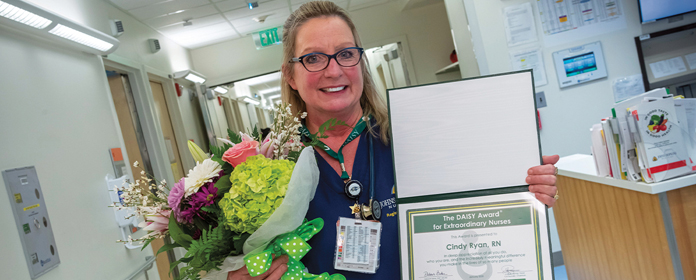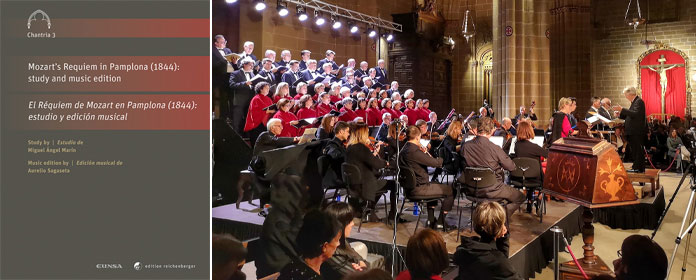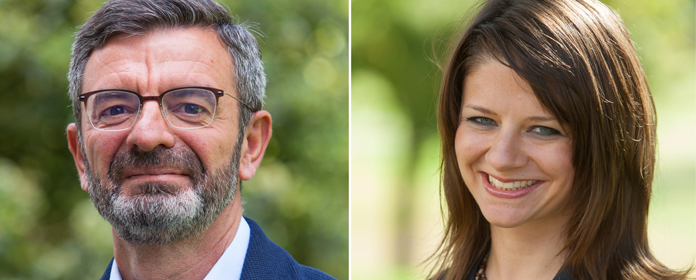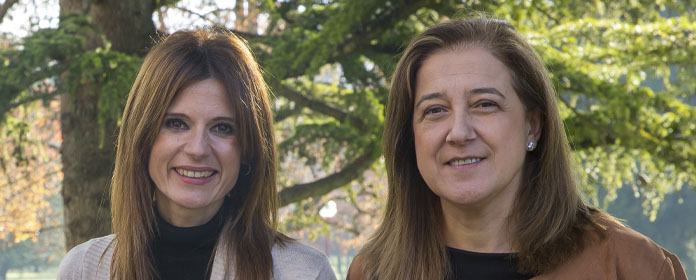"Cultural heritage doesn't exist if someone doesn't give it value."
Carlos Martínez Álava, head of the Historical Heritage Service of the Government of Navarre, stated at the University of Navarre that "heritage plays an essential role in the tourist development of Navarre".
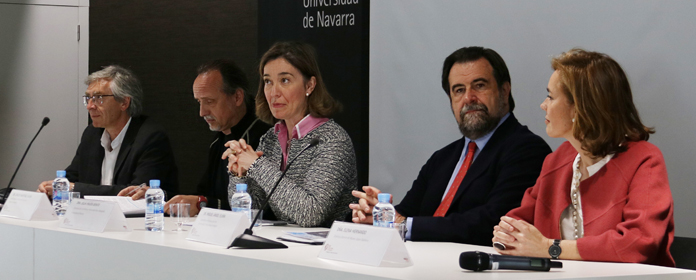
PHOTO: Elena Beltrán
"The human being confers value to heritage assets, selecting some and ignoring or relativizing others. Heritage does not exist if someone does not give it value". This was the opinion of Carlos Martínez Álava, head of the Historical Heritage Service of the Government of Navarra, at the workshop 'Resignifying heritage', organized by the Institute for Culture and Society (ICS) of the University of Navarra.
In this way, he pointed out that it is a "social construction" that is made "from the valuations of goods inherited by particular groups of people, who interpret them and give them sense and meaning, from agreement with their way of seeing the world". He assured that "it is re-signified from its social value, from its reflection in society, and it needs a trained and attentive critical mass".
Because he considers that heritage "is elastic in its social perception" and therefore "is in continuous change", Martínez Álava pointed out that his management is increasingly "more complex and rich" and requires a constant innovation process, with more agents involved in a transversal way to extend the value chain.
Thus, he insisted that when an asset is discovered, a whole process of enrichment begins that "is not only about restoration: it has to be documented, interpreted, discovered and socialized so that citizens can make it their own.
In the case of Navarre, he commented that the heritage "plays an essential role in the tourist development of the Community" and that around it are moving companies of restoration, hotels, archaeological interventions... The most visited destinations are the Royal Palace of Olite, the caves of Zugarramurdi and the Natural Park of the Señorío de Bértiz.
A proportional and respectful economic visionFinally, he provided ten key points on cultural heritage: it has an undeniable social and economic value because it generates direct and indirect economic activity; it is a potential tool of development staff and territorial; the work with it is innovative from any point of view; it requires mostly public investments; the value chain favors the development of other activities; the economic vision must be proportional and respectful, avoiding commoditization; rapid consumption, trivialization and globalized commonplaces must be avoided; it forms an ecosystem that must be respected; it requires common public-private governance; and it needs long-term strategic protection deadline.
The workshop of the project 'Creativity and Cultural HeritageThe ICS was moderated by Professor Julia Pavón and also included Miguel Ángel Elvira, Full Professor of Art History at the Complutense University of Madrid, who spoke on 'The National Archaeological Museum as a concept'; Antonio Jiménez, director-General Manager and secretary of the Albarracín Foundation, who focused on 'Albarracín, an exemplary case in management integral heritage'; and Elena Hernando, director - General Manager of the Lázaro Galdiano Museum, who presented 'The Lázaro Galdiano Museum, the update of a bequest'.

